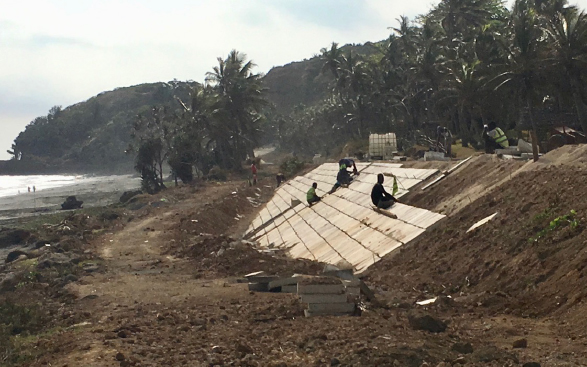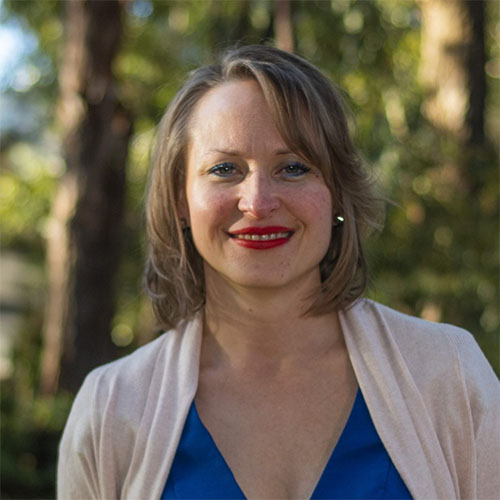
Above: Capital works, such as the sea wall being constructed in Vanuatu (above) could eventually face limitations on how much protection they offer.
Currently, the standard approach to defending buildings and other structures from the rising sea level impacts is through construction of a concrete or rock seawall, or some similar kind of so-called “capital works”. However, these interventions destroy or degrade natural ecosystems. One solution that avoids this problem is to use ecosystems to help reduce the risks from increasing coastal inundation and erosion.
We wrote a book chapter that examined limits to capital works such as sea walls as an adaptation strategy for coastal hazards in Pacific islands. Pacific island countries have a total of 31,110 km of coastline, including countries with greater than 1000 km.
We also considered the unintended harmful effects of these and how they compared to ecosystem-based adaptation options. The book is called Limits to Climate Change Adaptation, edited by Walter Leal Filho and Johanna Nalau and was published in 2018 by Springer.
A key point we make in our chapter is that in addition to the natural hazards presented by sea level rise, adaptation strategies must also consider the exposure and vulnerability of assets and communities. For buildings and infrastructure, these will vary with their design and location. For people, these is influenced by they live, whether they have access to safe places, how their houses are built, and their economic conditions.
The fact is that all coastal zones are dynamic and Pacific islands coasts are under constant processes of erosion and accretion with the active beach zone, with heavy erosion following extreme weather events and accretion typically following in due course. Capital works that disrupt these natural processes destroy reefs and mangroves, accentuate erosion, inhibit accretion, increased inundation and ultimately undermine the integrity of the built assets they are designed to protect as well as impacting on the lives of coastal communities.
While there are definitely situations where capital works are needed for coastal defences, there are many more contexts were an ecosystem-based approach will do a better job of reducing the risks, avoiding unintended harm, and providing more benefits to local communities.
About the editor:
Dr. Johanna Nalau
Climate change adaptation scientist.
Request a copy of the article
If the download article link below doesn’t work, or leads to a page that requests payment, please click the link to the author profile above and request a copy directly and they will be happy to assist. Not all reviewed journal articles are published as ‘open access’, which are free to download.
